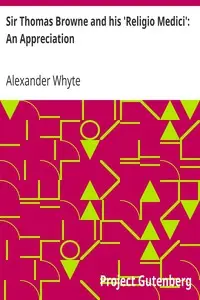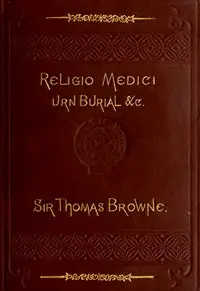"The Works of Sir Thomas Browne, Volume 3" by Sir Thomas Browne is a compilation of thought-provoking essays from the 1600s that looks into nature, religion, and philosophy. The narratives explore subjects such as the identity of the forbidden fruit in the Garden of Eden and questions about the lives and influence of figures like Methuselah and Aristotle; the author uses detailed and persuasive writing to explore these complex topics. Browne employs a critical method to traditional views by re-examining long-held ideas while encouraging readers to consider various perspectives. Each chapter builds on this theme, prompting reflection on the integration of scientific discovery and religious belief through examinations of scriptural texts with scientific theories.

The Works of Sir Thomas Browne, Volume 3
By Thomas Browne
Venture into a world where ancient beliefs about nature, the Bible, and ethical conduct are questioned, challenging what you thought you knew.
Summary
About the AuthorSir Thomas Browne was an English polymath and author of varied works which reveal his wide learning in diverse fields including science and medicine, religion and the esoteric. His writings display a deep curiosity towards the natural world, influenced by the Scientific Revolution of Baconian enquiry and are permeated by references to Classical and Biblical sources as well as the idiosyncrasies of his own personality. Although often described as suffused with melancholia, Browne's writings are also characterised by wit and subtle humour, while his literary style is varied, according to genre, resulting in a rich, unique prose which ranges from rough notebook observations to polished Baroque eloquence.
Sir Thomas Browne was an English polymath and author of varied works which reveal his wide learning in diverse fields including science and medicine, religion and the esoteric. His writings display a deep curiosity towards the natural world, influenced by the Scientific Revolution of Baconian enquiry and are permeated by references to Classical and Biblical sources as well as the idiosyncrasies of his own personality. Although often described as suffused with melancholia, Browne's writings are also characterised by wit and subtle humour, while his literary style is varied, according to genre, resulting in a rich, unique prose which ranges from rough notebook observations to polished Baroque eloquence.















